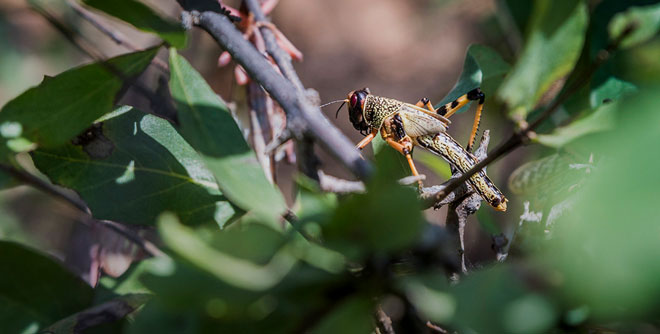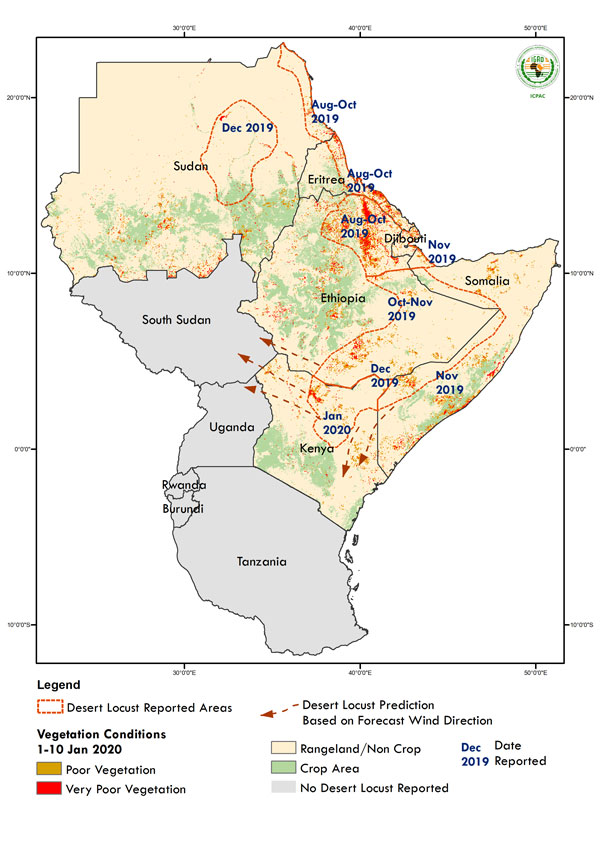
- Djibouti
IDA Credit: $6 million equivalent
Maturity: 40 years Grace: 10 years - Ethiopia
IDA Credit: $31.5 million equivalent
Maturity: 38 years Grace: 6 years - Kenya
IDA Credit: $43 million equivalent
Maturity: 30 years Grace: 5 years - Uganda
IDA Credit: $48 million equivalent
Maturity: 38 years Grace: 6 years
Kampala, Uganda | THE INDEPENDENT | The World Bank Group on Thursday announced that it has approved financing of $48m (Sh181 billion) to help Uganda fight an ongoing invasion of desert locusts.
Since February this year, at least 24 districts in 6 sub-regions of Uganda have been attacked by the locusts in areas of Acholi, Karamoja, Lango, Sebei, Teso and Bugisu.
The outbreak threatens the food security and livelihoods of millions of Ugandans, the World Bank said in a statement.
The money is just slightly below the $50m loan that Uganda had sought to borrow from the bank to deal with desert locusts. The country has already spent about sh20 billion on fighting locusts.

With government revenues at their lowest at the moment yet facing more demand for resources to deal with unbudgeted for occurrences like the Coronavirus pandemic, desert locusts and destruction from extreme weather, government is on a borrowing extravaganza.
For the desert locusts, the World Bank cites an assessment carried out by Food and Agriculture Organisation (FAO) and the World Food Program (WFP) in Karamoja and Teso, showing it would cost between $12 million and $42 million to safeguard and restore livelihoods if surveillance and locust management measures are lacking or ineffective.
An estimated 291,000 people are already considered severely food insecure in Karamoja and Teso.
The World Bank says the money will aid in formulation the Emergency Locust Response Program to help Uganda monitor and manage locust swarms to limit the growth of existing and new desert locust populations.
It’s also expected to improve coordination and early warning preparedness at the regional and national levels to prevent future infestations. The project is expected to support 950,000 direct beneficiaries and about 1.2m indirect beneficiaries in the locust-affected districts.
Tony Thompson, World Bank Uganda Country Manager, said “The locust invasion could coincide with the start of the planting season, which will likely affect the main staple crop production and the regeneration of grasslands for livestock feeds.”
He added that “these resources are timely to support affected households cope, and to strengthen Government’s response efforts.”
 The Independent Uganda: You get the Truth we Pay the Price
The Independent Uganda: You get the Truth we Pay the Price


